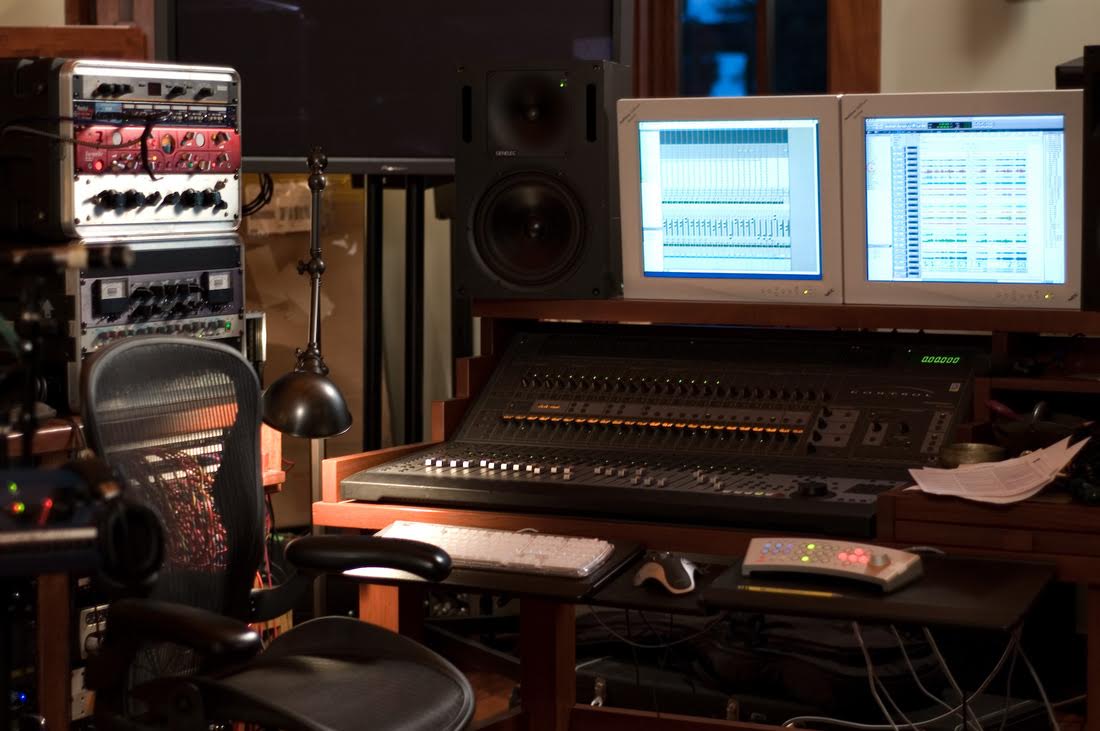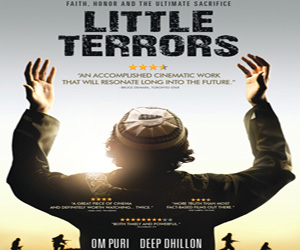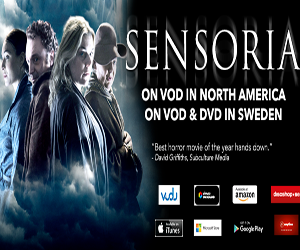In today’s world of film scoring, bringing the audience into the emotion of the scene is very different from the thematic underscoring of yesteryear when only conventional orchestral instruments were used and sound design played a back hand to foley. Modern scores, especially sci-fi /thriller films, rely heavily on sound design. This requires an intuitive skill set along with extensive technical knowledge.
When I met Princeton Holt, the lead producer of “Alienated,” I was told that they were looking for a disturbing underscore. The film is about a man who sees a UFO and has trouble telling his skeptical wife. Their relationship erupts into a spiral of problems – all against the backdrop of a possible nationwide alien abduction. Although isn’t a horror film, they wanted the music to suggest a somewhat impending state. Luckily, I seem to thrive on working in the minor modes and creating especially disturbing soundtracks.
“Different composers work at different speeds and it is wise to ask upfront how much time it would take to produce a complete soundtrack. Wrong coordination of timing and expectations can be a major problem if you are working with a composer.”
Alienated relied heavily on musical foreshadowing. The audience was to feel that at any moment something awful could happen. And so, even in the opening credits, you will hear a small music theme juxtaposed within a sound collage of brash and obtuse elements serving as background to the brilliantly dark artwork.
Here are some things to consider when working with a film composer:
1) It’s Worth the Money- This is definitely one of those occasions in life where you “get what you pay for”. There is no doubt, even to a non-musician, that a custom made score sounds far superior to “free” music that is plastered onto the track from public domain because it sounds like it has the right vibe. When I scored Alienated I literally wrote/composed as each frame moved along. Evidence of this can be heard especially towards the end of the film when tensions are mounting and the central relationship is spiraling downwards.
2) Directors should be specific about what they want and expect. A composer may be very talented, but that doesn’t make them a mind reader.
3) It is also a good idea to consider the workflow habits of the composer. Composers receive the film when it goes into postproduction. Different composers work at different speeds and it is wise to ask upfront how much time it would take to produce a complete soundtrack. Wrong coordination of timing and expectations can be a major problem if you are working with a composer.
4) Understanding the Film- Do not take for granted that the composer understands your film. Composers need direction just like actors. Make sure that they are on the same page as you regarding the feelings to enhance throughout the film.
5) Do they have the proper equipment and skills? All film composers work initially on a computer and have various levels of composing software. Do they have software that is adequate to create the sounds you desire? In many cases, the computer mock up winds up being the actual score. However, large budget films use conventional instruments. In this case, music sheets must be processed for live musicians to read from. Therefore, the composer must convert the computer files into a real score or, hire someone who can do this. Additionally, the composer will have to conduct the orchestra for the taping of the soundtrack while the film is playing on a large screen thus synching everything to the picture.
6) Delivering the Score- In many cases, once the score has been approved the composer sends a complete WAV file with all the music stems to the editor. The editor takes over from that point. If, however, you are fortunate enough to have gotten a major distribution deal, then the delivery process is much more complicated. As was the case on our film Alienated, the music stems have to be converted into 5.1 surround sound and if the film gets international distribution separate stereo music & effects (M&E) in CAF format or each surround channel in AIFF or WAV format is required.
Does all this sound complicated? Don’t fret! It only may sound complicated to you, but fortunately it is not complicated to an experienced composer or sound designer. Make sure you get one on your next production. You may be surprised at how crucial yet affordable hiring a good one can be, but most importantly, how much it can save the distribution life of your film.
BIO:
Barbara J. Weber is an award winning film composer. Her work and contact information can be found at BarbaraJWeber.com. ALIENATED is in select theaters and will be released on VOD on March 31st.































